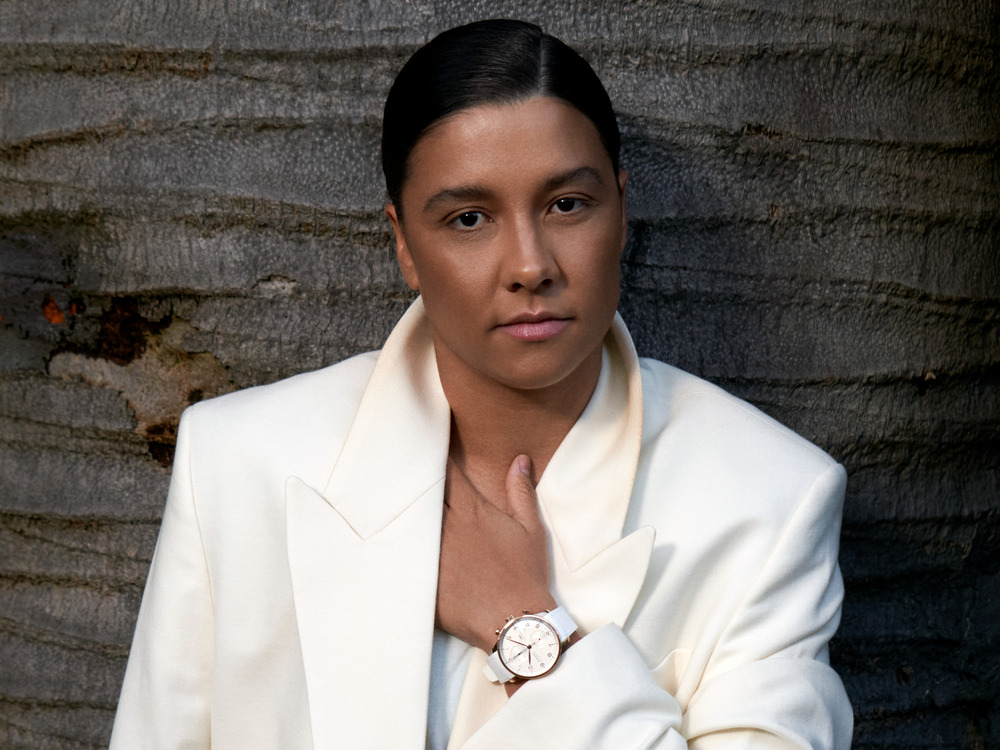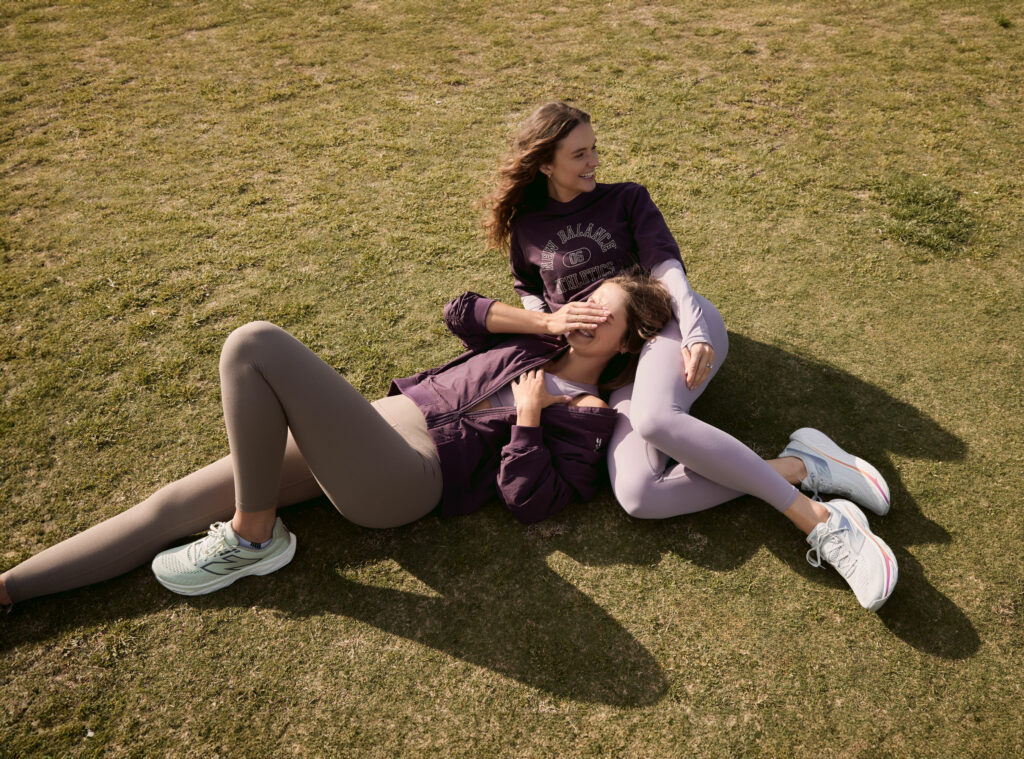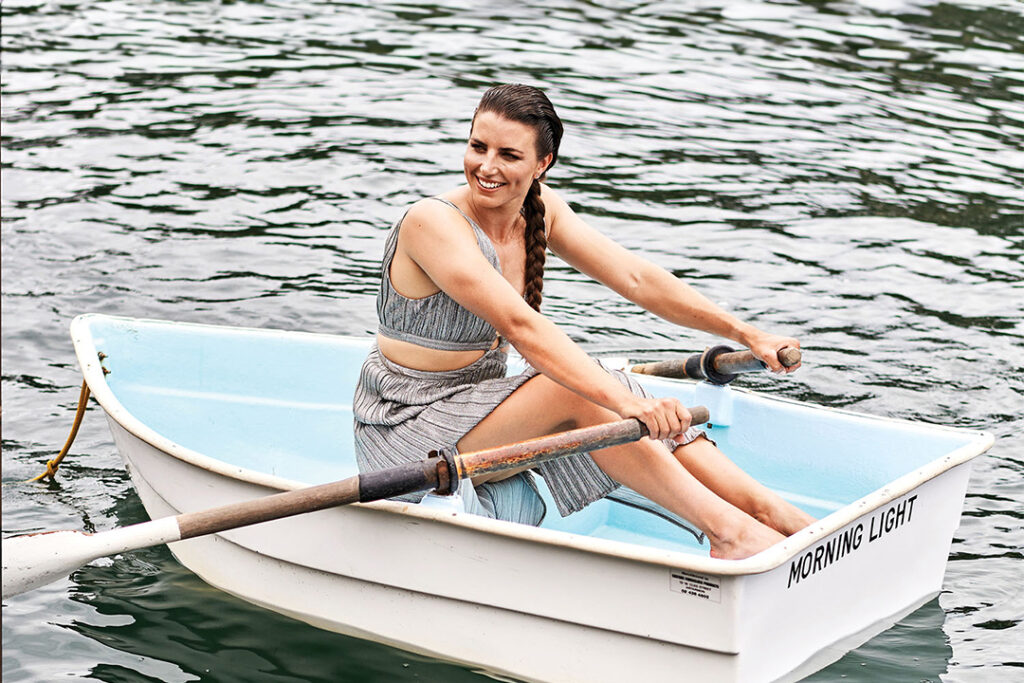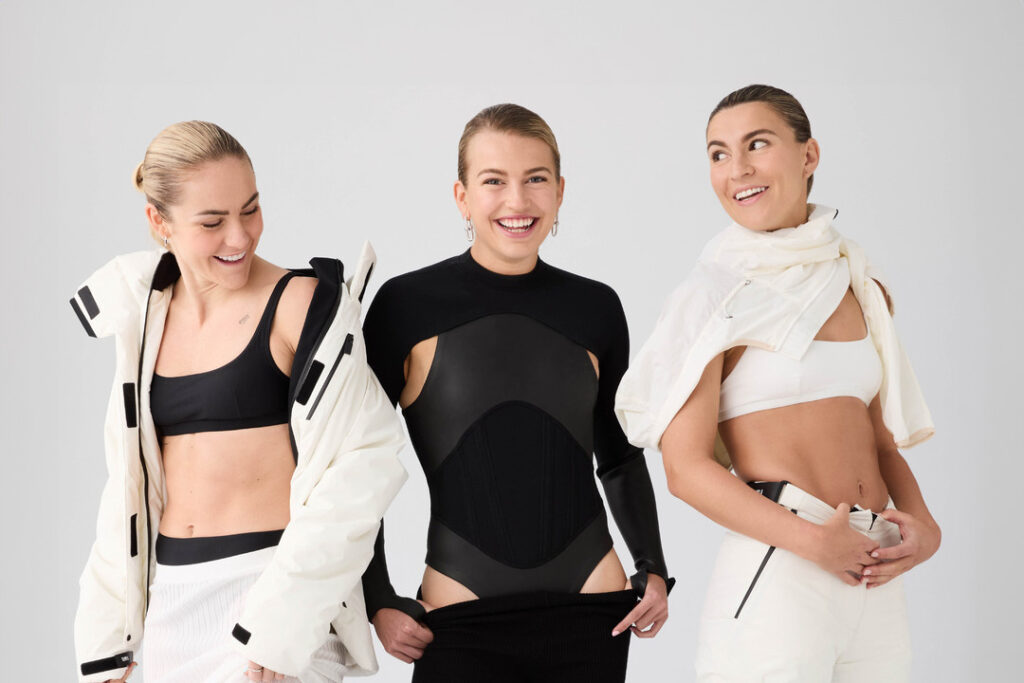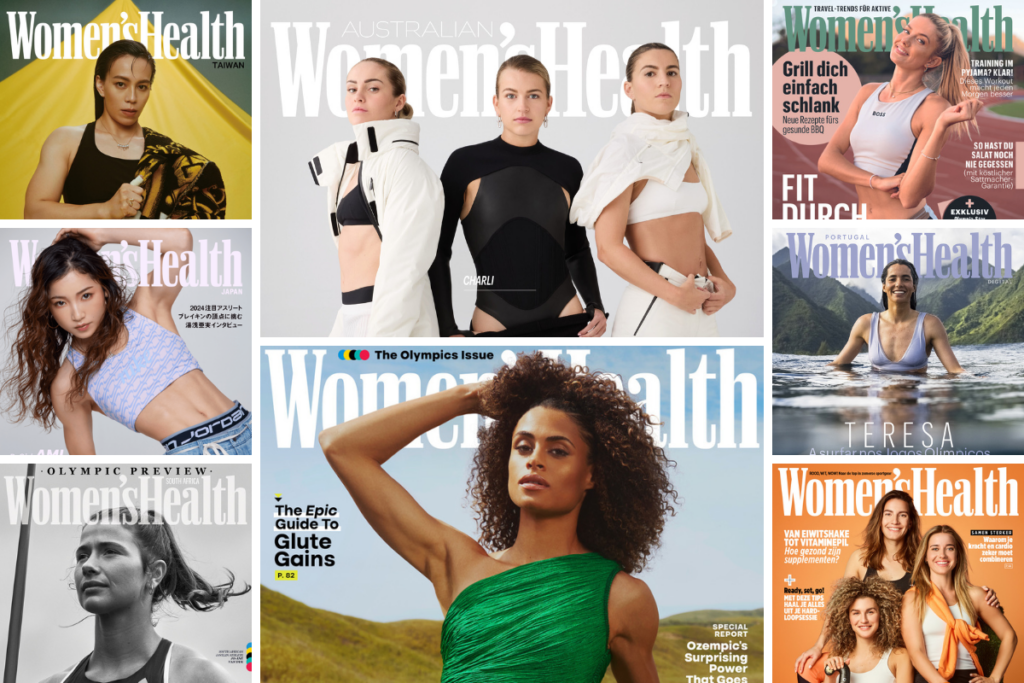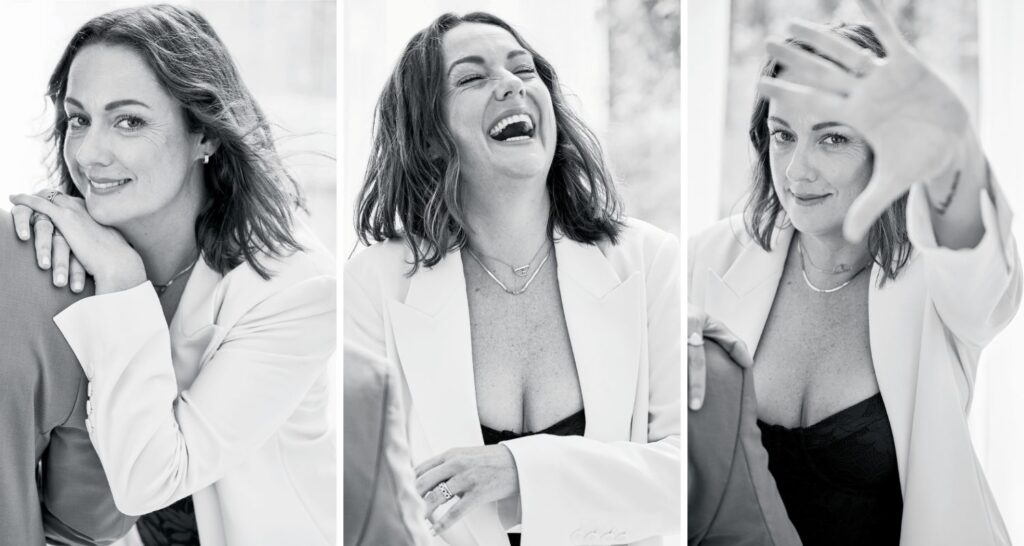SAM KERR HAS had a busy year. Between kicking off the Matildas’ World Cup campaign in July, to being crowned the Asian Football Confederation’s Women’s Player of the Year, and proposing to her long-time partner and fellow footballer Kristie Mewis, the 30-year-old has been kicking goals of every kind.
And while for most, Christmas is a period for reflection and rest, the Perth-born star is setting her sights on new milestones. Not only is she seeking to win big international tournaments like the World Cup and the Olympics, she also wants to help Chelsea win the Champions League. On a personal level, meanwhile, she’d like to be the first Australian to claim the Ballon d’Or, football’s most prestigious individual award.
But on top of all that, Kerr remains loyal to an ongoing mission: to drive attention to football Down Under, especially the women’s game.
“I want to keep driving [attention towards] the disparity in investment from the government [in football] compared to Aussie Rules or rugby league,” says Kerr in her recent Esquire Australia cover story. “For such a small country, in comparison to other footballing nations, we do really, really well. The fact that we had the Socceroos and the Matildas both qualify for the World Cup is an unbelievable achievement. The government should get behind us.”
Earlier this year, following the team’s heartbreaking 3-1 semi-final loss to England, the Matildas’ captain called for Australia’s deep run in the Women’s World Cup to be used as a catalyst for change in Australian football—stressing that for our country to rival top global sides, more funding and investment is needed, from the top level down to the grassroots.
That semi-final—which saw thousands turn out across Australia, with both Melbourne’s Federation Square and Sydney’s fan festival site at Tumbalong Park reaching capacity—was a clear indicator of our appetite for women’s football—an appetite that has been building in recent years.
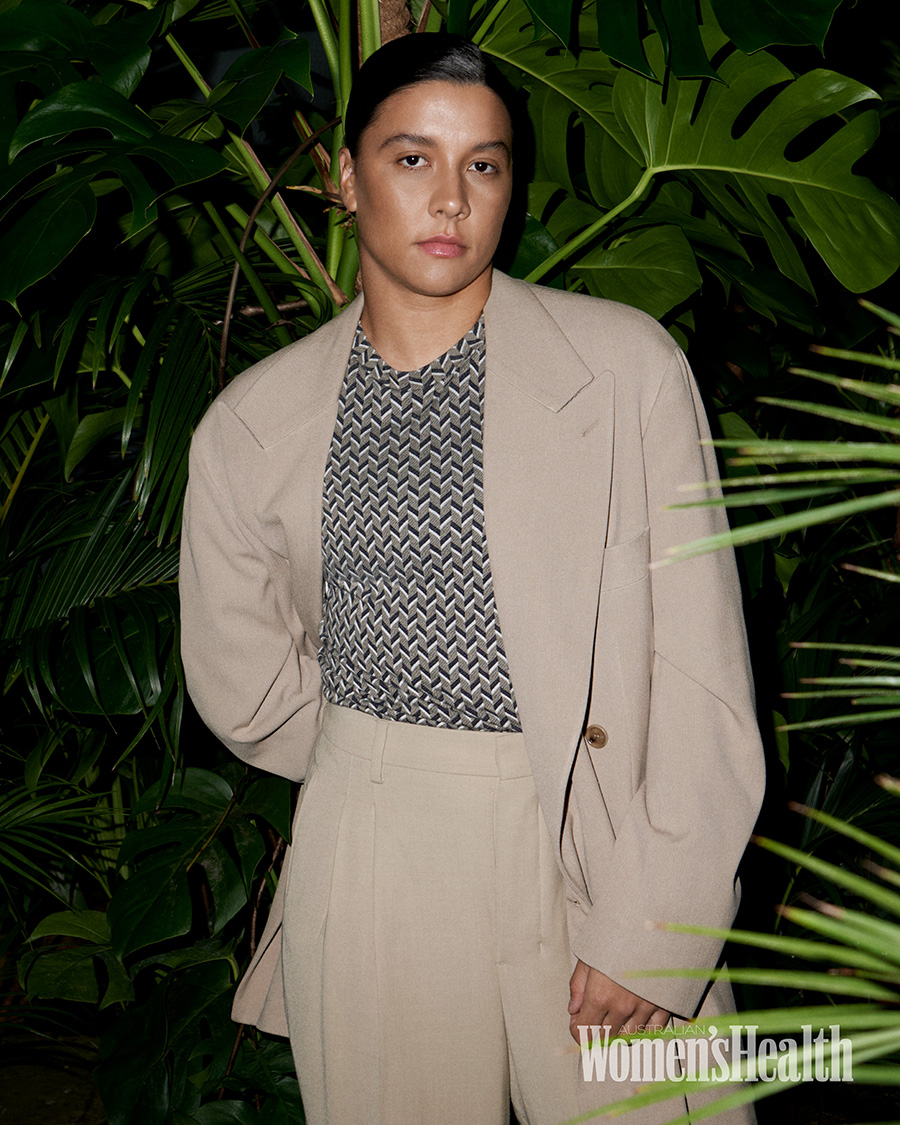
“I think the Euros are what started it: England winning the Euros was like what the Matildas experienced during the World Cup. After that I noticed a change in the WSL [Women’s Soccer League], and even internationally. At home, [thanks to] the build up to the World Cup, we’ve started to see the change. I think when you bring a major tournament to your hometown, and everyone can just go to the games and they don’t have to fly across the world, it brings a newfound level of popularity and interest,” Kerr tells Esquire.
To Kerr, the Australian public’s reception this year was unlike any other. The Sydney Opera House was illuminated in green and gold. Passengers on incoming international flights were given the latest news on the Matildas. “GO MATILDAS” replaced standard messages on train-station screens.
It was a change that Kerr felt happening in real time when she was out on the pitch.
“Australia is growing into a massive footballing nation. The girls and I were laughing because you could tell that the longer the World Cup went on, the more the Australian public actually understood the rules of football rather than just cheering for the team because they love us. We would do a bad pass and they’d get angry at us, or when it was offside, they’d be screaming—it was a nice experience to see the country change like that during a month of football.
“It wasn’t just about going out and cheering on your favourite player win, lose or draw. It was about actually expecting good performances.”
And while the Women’s World Cup generated momentum in the right direction (the Australian government put $88 million into hosting), Kerr thinks it can go further—that we shouldn’t think of it in terms of a one-off investment. “We’ve seen, off the back of the World Cup, all the investment into women’s sport from the government. And something that I want to keep pushing, and want to keep driving, is the disparity in investment from the government.
“Personally I’m really passionate about growing kids’ love for football, and developing them, and [giving] them somewhere to go so that they can train like a pro and learn how to live like a pro. So I think there’s different avenues of development.”
In Australia in 2024, Kerr will be opening a nationwide school for young players—girls and boys aged 3-14—who’ll be trained, in an age-appropriate way, like professionals. It’s called Sam Kerr Football, or SKF.
“The schools that I’ve just opened [are] a really cool way for me to give back to the fans, but also have things that when I was a kid, I wish I had access to. It’s just a new program that’s coming up next year, and we’re going to run them all over the country. And it’s just going to be a way for young girls and boys to sign up and learn how to be a pro. And it’s going to be amazing.”
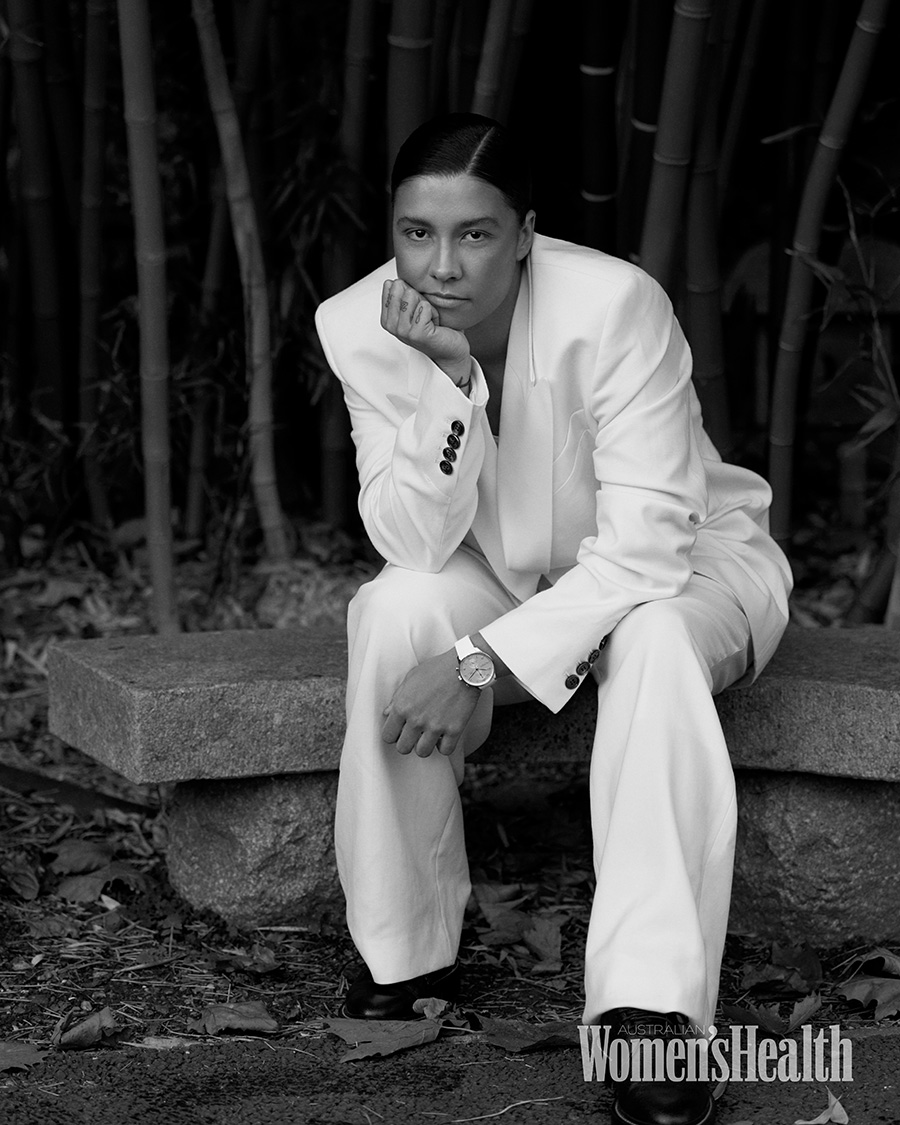
Kerr hopes that her schools, and the burgeoning popularity of the sport more generally, mean that the level of interest in football among young players will continue to grow. Especially for young girls, who have an incredible league of women—including Sam—to look up to as role models.
“I’ve always felt that being an athlete is so much more than just being out there on the pitch,” she says. “I think it’s important to have role models, especially female role models, because when I was growing up, I didn’t have all the female role models that kids nowadays have.”
For Kerr, these notions of example and inspiration go beyond gender. She’s proud of her Indian heritage, and often receives messages from young girls in Asia who desperately want to be professional footballers but feel they have no path to making that happen. These messages, Kerr says, “Show the impact football can have not only on young girls, but on countries, culturally.”
Photography: James Anastasi
Styling: Way Perry
Hair and make-up: Terri Capon
Photography assistants: Stefane Belewicz and Heather Lawrence
DOP: Toby Weston
Producer: Stephanie Lawley.
This story appears in the December/January 2023/2024 issue of Esquire Australia, on newsstands December 14. Subscribe here.
All watches available at IWC Boutiques or on IWC.com

